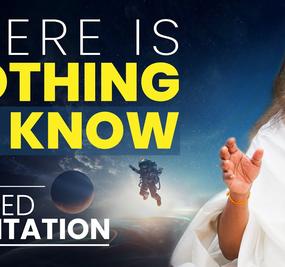Introduction
In life, we often encounter situations where we feel hurt, betrayed, or wronged by others. These negative experiences can weigh us down and prevent us from moving forward. However, there is a powerful tool that can help us release the burden of anger and resentment – forgiveness. The power of forgiveness in letting go is truly transformative. By forgiving, we free ourselves from the chains of negativity and open up space for healing, growth, and inner peace.
The Power of Forgiveness in Letting Go
Forgiveness is not a sign of weakness; it is an act of strength and liberation. When we forgive, we choose to release the grip of negative emotions and make room for healing and growth. By letting go of anger, resentment, and grudges, we free ourselves from the burden that weighs us down. Forgiveness allows us to move forward with a lighter heart, a clearer mind, and a renewed sense of purpose.
Why is Forgiveness Important?
Forgiveness is important for our overall well-being and happiness. Holding onto grudges and resentment only perpetuates negative feelings within us. It can lead to increased stress, anxiety, and even physical health problems. By practicing forgiveness, we can break free from this cycle of negativity and experience profound personal growth.
How to Forgive?
Forgiveness is a process that requires both self-reflection and a willingness to let go. Here are some steps to help you on your journey of forgiveness:
- Acknowledge your feelings: It’s important to acknowledge and accept the emotions you’re experiencing. Allow yourself to feel anger, hurt, or disappointment.
- Understand the other person’s perspective: Try to put yourself in the other person’s shoes and understand their motivations or circumstances. This can help cultivate empathy and compassion.
- Release the need for revenge: Let go of the desire for revenge or punishment. Understand that seeking revenge only perpetuates negativity and keeps you stuck in a cycle of hurt.
- Practice self-compassion: Be kind and compassionate towards yourself. Remember that forgiveness is a gift you give to yourself, not to the person who hurt you.
- Let go of resentment: Make a conscious choice to let go of resentment and choose forgiveness instead. This may take time and effort, but it is a powerful step towards healing.
The Benefits of Forgiveness
Forgiveness offers numerous benefits for our physical, emotional, and mental well-being. Here are some of the positive outcomes of practicing forgiveness:
- Reduced stress and anxiety: Forgiving others can alleviate the stress and anxiety associated with holding onto grudges. It allows us to experience greater peace of mind and emotional freedom.
- Improved relationships: Forgiveness can strengthen relationships and foster deeper connections. When we forgive, we create a space for understanding, empathy, and reconciliation.
- Enhanced mental health: Letting go of resentment and anger can contribute to improved mental health. It allows us to break free from negative thought patterns and cultivate a more positive mindset.
- Increased self-esteem: Forgiveness empowers us and boosts our self-esteem. It shows that we are capable of rising above hurtful experiences and choosing a path of compassion and understanding.
- Inner peace and happiness: Ultimately, forgiveness brings inner peace and a sense of happiness. By releasing negative emotions, we create space for joy, gratitude, and contentment.
FAQs
Conclusion
The power of forgiveness in letting go is an incredible force that can transform our lives. By choosing forgiveness, we liberate ourselves from the shackles of negativity and create space for healing, growth, and inner peace. Letting go of anger, resentment, and grudges paves the way for a brighter future filled with compassion, understanding, and meaningful relationships. Embrace the power of forgiveness and experience the profound positive impact it can have on your life.




















